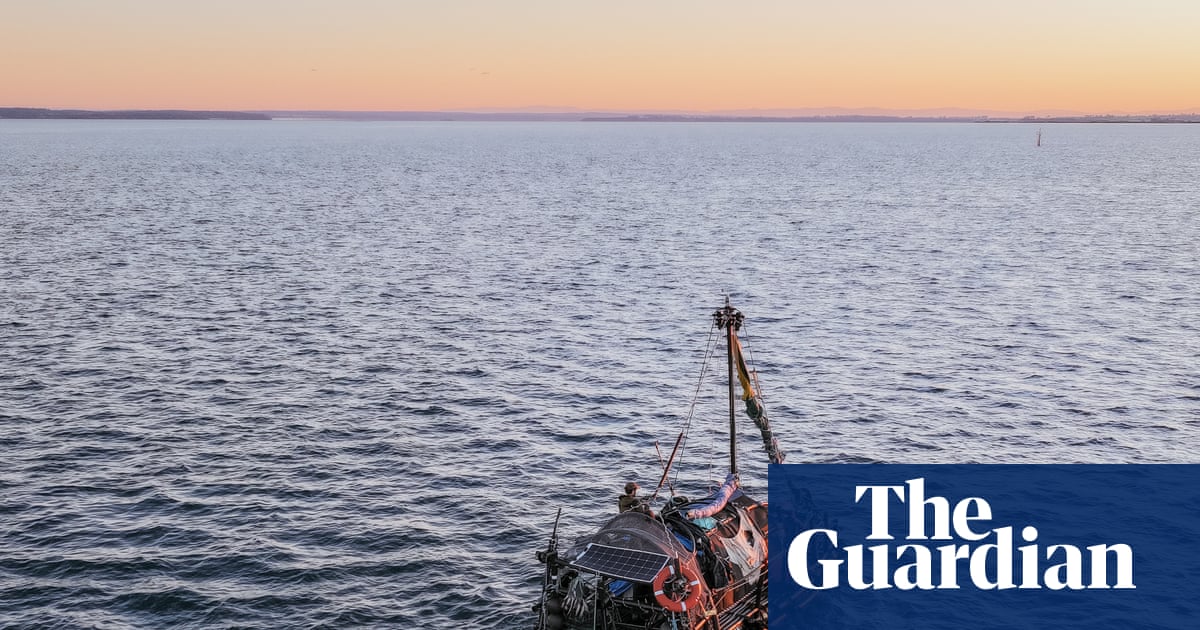
"Word spread through French Island's WhatsApp group before we'd even docked there was a boat made of rubbish heading their way. By the time Samuel McLennan secured his vessel built from marine debris at Tankerton Jetty, a small crowd had formed. Alan Pentland, editor of Off-the-Grid, the island's newsletter, was already waiting to get a photo and eager for a story. A constant stream of people came down over the next two hours to have a chat,"
"The 48-year-old spent two years assembling a vessel from an alarming variety of marine debris: commercial fishing rope, oyster bags, agricultural plastics, recreational fishing gear, and oyster farm buoys to keep the vessel afloat. The massive black polyethylene pontoons, originally fish farm infrastructure, supported a craft that could both sail and motor across Bass Strait. Even the sail was crafted from debris: a tent base found on Flinders Island shoreline, part of a truck tarp from the Sorell coast,"
Samuel McLennan arrived at French Island in a vessel assembled from marine debris and attracted local interest at Tankerton Jetty. He spent two years collecting commercial fishing rope, oyster bags, agricultural plastics, recreational fishing gear and oyster farm buoys to provide flotation. Massive black polyethylene pontoons repurposed from fish farm infrastructure enabled the craft to both sail and motor across Bass Strait. The sail combined a tent base found on Flinders Island shoreline with part of a truck tarp from the Sorell coast, stitched together with fishing braid. The collection represents a tiny fraction of the 14 million tonnes of plastic entering oceans annually. The Bass Strait crossing began in early 2024 with months spent at Walkerville South and Phillip Island after a period of business setbacks and deliberate homelessness.
Read at www.theguardian.com
Unable to calculate read time
Collection
[
|
...
]